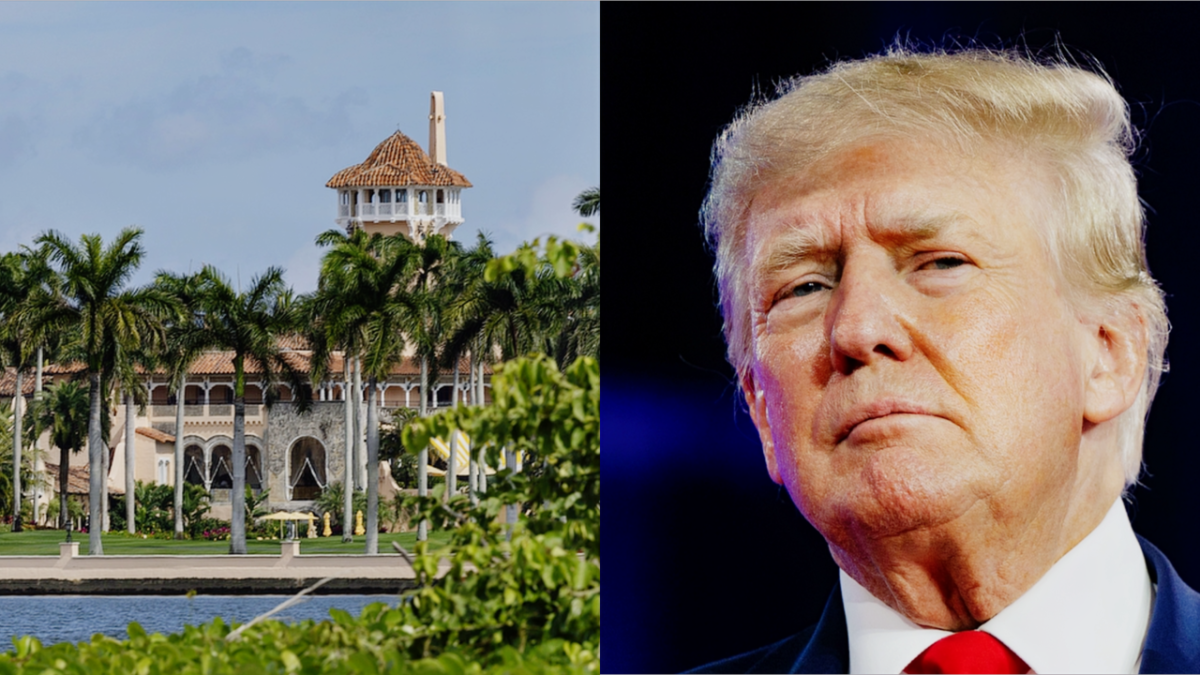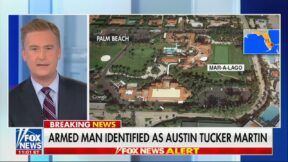Unsealed Mar-a-Lago Affidavit Reveals FBI Confirmed Classified Documents at Mar-a-Lago

The affidavit used to obtain a search warrant served at the Mar-a-Lago home of former President Donald Trump has been released with significant redactions as submitted by the Department of Justice.
The DOJ delivered a redacted version of the document to Judge Bruce E. Reinhardt on Thursday, who approved the redactions and ordered the release of that version of the affidavit by noon Friday.
The document features the timeline of the DOJ’s involvement in this case going back to February when the FBI received a referral from the National Archives that 15 boxes have been retrieved from Mar-a-Lago and that they contained significant amount of classified information. It notably states that there is further probable cause to believe that additional documents have contained classified national defense information or that presidential records subject to record retention requirements currently remain at the premises.
Significantly, the affidavit shows that the FBI believed they had to take this extraordinary step of searching a former president’s home and seizing documents: they believed they could find evidence of obstruction, not just the storage of classified material.
Download the full affidavit here, or read an embedded copy at the end of this article.
Several media outlets, which included the New York Times, the Wall Street Journal, Miami Herald, CNN, CBS, and NBC, filed a motion seeking the release of the affidavit that had been submitted by the FBI to Reinhart in support of their warrant request, arguing that the “public has a ‘clear and powerful’ interest in understanding the unprecedented investigation in former President Donald J. Trump’s handling of classified records.”
The Department of Justice responded with its own motion objecting to the affidavit’s release, saying that it “would serve as a roadmap to the government’s ongoing investigation, providing specific details about its direction and likely course, in a manner that is highly likely to compromise future investigative steps,” further citing the involvement of “highly classified materials” as a factor that “further underscores the need to protect the integrity of the investigation and exacerbates the potential for harm if the information is disclosed to the public prematurely or improperly.”
What is redacted from the affidavit includes names and identifying information about the FBI agents involved in the investigation and details about the fifteen boxes of documents the search warrant was targeting.
The core justification for seeking the warrant is in the unredacted portion. The DOJ argued, and Judge Reinhart found convincing, as follows:
Further, there is probable cause to believe that additional documents that contain classified NDI or that are Presidential records subject to record retention requirements currently remain at the PREMISES. There is also probable cause to believe that evidence of obstruction will be found at the PREMISES.
The affidavit further stated that the FBI’s preliminary review back in May of the 15 boxes returned from Mar-a-Lago in January found 184 documents with “classified” markings, including 67 marked as “CONFIDENTIAL,” 92 marked as “SECRET,” and 25 marked at “TOP SECRET,” intermixed with handwritten notes from Trump and other documents. According to the DOJ, Mar-a-Lago was not an “authorized” and properly secured location for such classified documents.
Law&Crime’s Aaron Keller has a detailed analysis of the redacted affidavit and the legal arguments therein here.
Sarah Rumpf contributed to this report.
This article is breaking and has been updated.
New: The Mediaite One-Sheet "Newsletter of Newsletters"
Your daily summary and analysis of what the many, many media newsletters are saying and reporting. Subscribe now!






Comments
↓ Scroll down for comments ↓